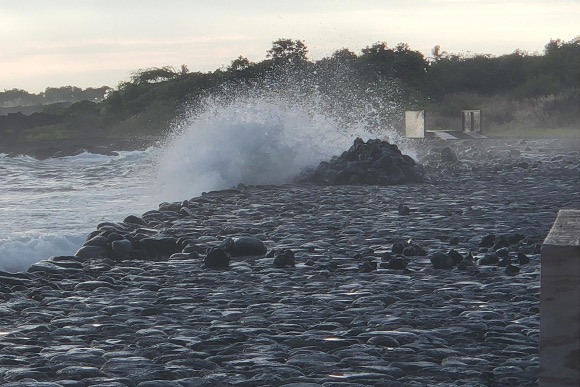
We are co-producing research with two frontline communities in Hawaii to map future and desired nature-based solutions to support socio-ecological resilience to flooding and climate adaptation.
Why We Care
Nature-based solutions (NBS) are gaining increasing support at international, federal, and local levels as strategies to reduce flooding and build social-ecological resilience to climate change, while also providing other social and ecological benefits. Available evidence suggests that NBS, such as restoring forests and wetlands, can help reduce the societal impacts of small to medium-sized floods, and thus play an important role in broader climate adaptation strategies. Inclusive and participatory design processes that center equity and justice in NBS are critical to the long-term effectiveness of these projects.
In Hawaii, there is a need to improve understanding of the range of existing and desired place-based NBS, including, for example, the restoration and maintenance of Indigenous agroecosystems and other place-based practices as well as the opportunities and barriers to their implementation. Indigenous communities, including those in Hawaii, have employed NBS to mitigate flood risks for many centuries, and are critical to incorporate into NBS funding and planning. In addition to potentially reducing flooding risk, by centering local participation and knowledge, these place-based NBS have the potential to address recognitional, procedural, and distributional justice concerns, which are often overlooked in NBS design and implementation.
What We Are Doing
Through collaborative, co-produced research with communities across the Hawaiian Islands, this project will:
-
- Identify and document local flood risk perception, flood communication needs, and the range of NBS currently practiced and desired by communities across Hawaii; and
- Co-produce research around social-ecological resilience to flooding with two frontline communities, including through participatory systems mapping of future and desired NBS to support climate adaptation.
Benefits of Our Work
This project will result in a clear understanding of the range of existing and desired NBS for flood risk reduction in communities across Hawaii, which can be used to support improved guidance around NBS and flood resilience best management practices. Co-produced research with 2–3 frontline communities will help elevate community-based land management as a climate resilience strategy and highlight current flood communication needs. The project team will produce participatory maps of existing and desired futures of NBS, as well as theories of change combining the local and technical knowledge available on the links between NBS and flooding outcomes. This effort will support future efforts to include local management and knowledge in flood modeling, communication, and response, and will set the stage for long-term CIROH collaborations through building relationships and co-producing research agendas with frontline communities.
The project is led by Dr. Leah Bremer of the University of Hawaii at Mānoa and includes co- investigators Dr. Aurora Kagawa-Viviani, Dr. Mehana Vaughan, and Dr. Yinphan Tsang at the University of Hawaii at Mānoa Water Resources Research Center, and Katy Hinzen at Hawaii Sea Grant. The project is part of the Cooperative Institute for Research to Operations in Hydrology (CIROH).
